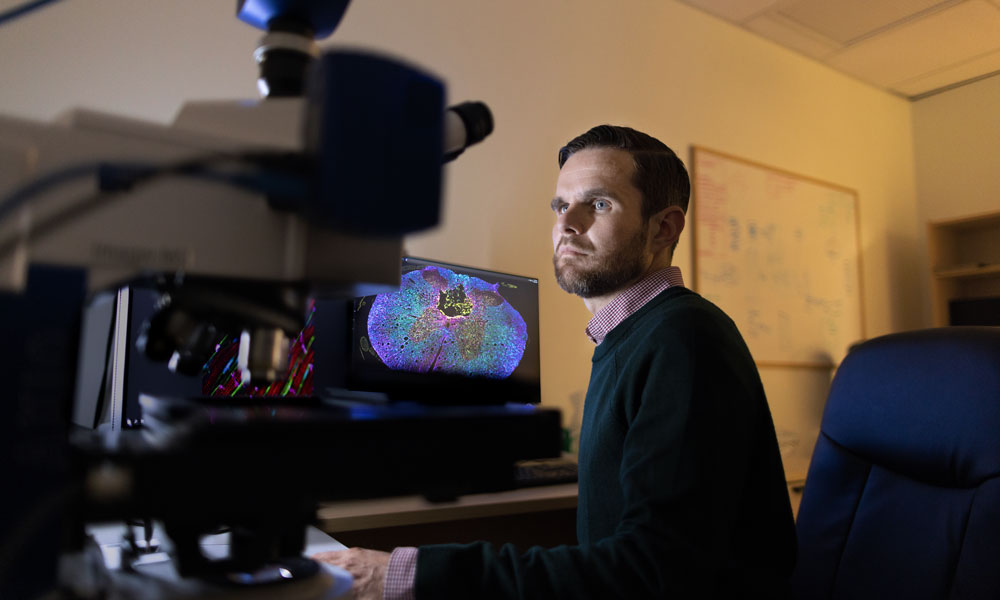
An estimated 85,000 Canadians live with a spinal cord injury (SCI), and approximately half of those injuries are sustained because of a traumatic event like a motor vehicle crash or fall.
UBC Okanagan’s Dr. Christopher West first became involved in SCI research during his Master of Science at Brunel University London, where he worked with the Great Britain Wheelchair Rugby squad.
“As I was conducting my research I thoroughly enjoyed working with this group and became intrigued by how SCI impacts pretty much every bodily system,” explains the now-Associate Professor and investigator with UBCO’s Centre for Chronic Disease Prevention and Management. “That’s how I decided I wanted to continue my research in this area.”
While considerable global research has been focused on getting people with SCI to walk again, “comparatively little has been done to comprehensively understand what happens to the body’s systems that are under automatic control after a spinal cord injury,” adds Dr. West.
“Take cardiovascular disease, which is the leading cause of death for people with spinal cord injury. That’s due in part to reduced brainstem control over the nerves that regulate blood pressure, blood volume and heart function. How can we help these people live better, longer, healthier lives?”
Through his work with the Centre, Dr. West wants to know two key things: first, how we can better protect the spinal cord after immediate injury to preserve the nerves that ultimately control heart, lung and autonomic nervous function? Second, what kinds of interventions can be developed to offset long-term cardiovascular disease progression?
To answer some of these questions, Dr. West is part of an international team that could potentially revolutionize spinal cord research through the use of innovative, implantable stimulation technologies to target the spinal pathways responsible for controlling cardiovascular function. Funded through a grant totalling between $22 and $36 million from the United States Defence Advanced Research Project Agency (DARPA)—a US Department of Defense program—to the University of California Davis, 12 institutions are supporting the university’s projects in this area, including UBC’s Vancouver and Okanagan campuses, the University of California campuses in San Diego and San Francisco, University of Calgary and a number of biotech start-ups and non-profits.
Please visit the UBC Okanagan News site to read the full story.
Through Strategy 10: Research Culture, UBC is working to develop the principles and practices that define a collaborative and inclusive research culture and that support mentorship, scholarship, discovery and creativity.